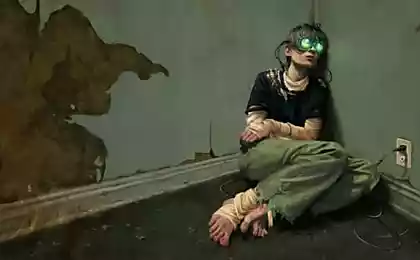18
How to know if your life is going downhill

How to know if your life is going downhill
In today’s world, millions of people live on autopilot without noticing how their existence turns into a meaningless routine. But there are clear signals that indicate it’s time to stop and rethink your path.
73%
People feel that their lives are devoid of meaning and direction
Red Flags of Life Crisis
Imagine living in a comfortable illusion of stability. Home, work, weekends with friends, vacation to the sea once a year. To the question “How are you?” automatically answer “normal”. But once that sense of normality crumbles like a house of cards, you realize nothing is normal.
Attention! If you recognize yourself in the following signs, your life may be in a dangerous zone of stagnation.
Complete lack of personal growth
Human development occurs in four key areas: intellectual, professional, material and personal. If you haven’t seen progress in any of these areas for years, it’s a serious wake-up call.
Signs of lack of development:
- Your skills are at the same level as they were a year ago.
- Salary hasn't increased in years
- You don’t read books or learn new things.
- The circle of communication does not expand
- No new goals or plans for the future
Life on autopilot
Zero Awareness is when you function as a biological robot performing pre-programmed actions. Such a regime may be comfortable, but it leads to an existential vacuum, a state in which life loses all meaning.
We must live in such a way that death is an injustice. – Miguel de Unamuno
Diagnosing a life crisis
Primitive desires as an indicator of immaturity
Your desires are a mirror of your personality. If all your aspirations are reduced to immense consumption or, conversely, to fantastic dreams without connection with reality, this indicates an internal crisis.
There are two types of destructive desires:
Consumer desires: The desire to accumulate things, status purchases without internal growth
Fantastic dreams: Unrealistic plans that prevent you from seeing opportunities in the present
Unjust peace syndrome
The constant search for those responsible for their failures is a classic psychological defense mechanism. When a person blames society, fate, or the universe for his problems, he loses the ability to change.

Strategies for exiting the crisis
Stop frame technique
The first step to change is conscious stopping. Set aside an hour a day to analyze your actions, thoughts, and feelings. Ask yourself questions:
- What am I doing now and why?
- Are my actions moving closer to the desired future?
- What emotions do I feel most often?
- What do I really enjoy?
- What would I change if I could start over?
The Four Spheres Rule
Create a development plan in each of the four areas of life. Don’t try to change everything at once – pick one area and focus on it for three months.
21.
It takes a day to form a new habit.
The Practice of Healthy Selfishness
Many people lose themselves by constantly sacrificing their needs for others. Healthy selfishness is not self-love, but concern for one’s own well-being as a basis for helping others.
The principles of healthy selfishness:
• Your needs are as important as the needs of others.
• Say no to things that drain you without benefit.
• Invest time and resources in your development
• Don’t feel guilty about taking care of yourself.
Algorithm of rebooting life
Step 1: Current status audit
Conduct an honest assessment of all areas of your life on a scale of 1 to 10. Determine where you are now and where you want to go.
Step 2: Identifying false beliefs
Many of our limitations exist only in our heads. Write down all the beliefs that you “can’t,” “can’t,” or “don’t deserve,” and critically examine them.
Step 3: Creating a new reality
Start with small but specific actions. Do something every day that brings you closer to your life, even if it only takes 15 minutes.
Remember: Change is not a one-time event, but a daily process. Be patient with yourself, but don’t stop.
Conclusion: from existence to life
Knowing that your life is falling into an abyss is not a sentence, but an opportunity. This is the moment of awakening when you can take control of your destiny. Remember, it’s better to be late than never.
Life is too short for survival. Each of us has the potential to create a bright, meaningful life. The main thing is to find the courage to take the first step towards change.
The process can be interrupted at almost any time, even at the very edge. However, the sooner a person realizes his position, the more time he will have to make useful decisions.
Glossary of terms
The existential vacuum The term of the psychologist Victor Frankl, denoting the state of inner emptiness and lack of meaning in life.
Healthy selfishness reasonable care for their own needs and interests without harm to others.
Mindfulness The ability to focus on the present moment by being aware of your thoughts, feelings and actions.
Stagnation A state of stagnation, lack of development or progress in various areas of life.
Autopilot mode A state in which a person acts automatically, without conscious control over their decisions.
A life crisis A tipping point in life when old behaviors stop working, requiring drastic changes.























